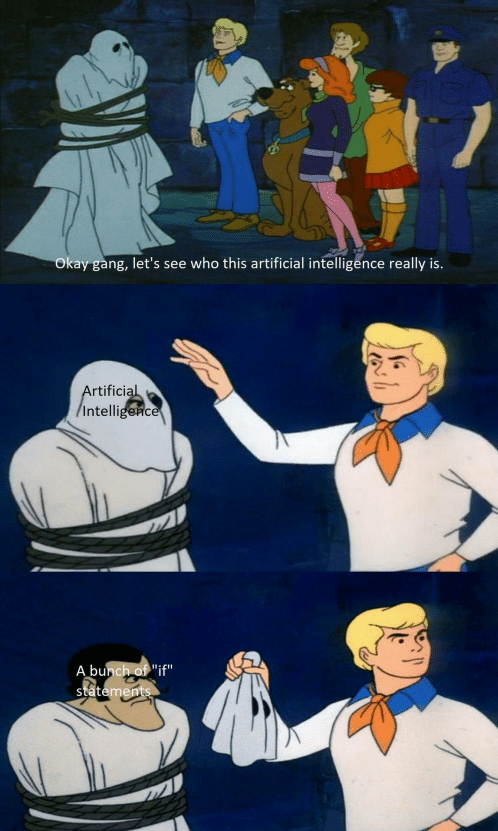Does the idea of getting approximately 7.2 times the return on investment OR reducing legal spending by 20% OR saving 28% (80% in a few cases) in contract reviewing time appeal to you?
If yes, then what I have to say next might interest you.
And no, I didn’t pull these numbers out of thin air. These are “based on true stories” from real companies such as Levi’s & Co., Hewlett Packard (HP), Pearson’s, and Brandwatch.
While their domain and problems may be different, they all had one thing in common- they all integrated legal technology into the system that resulted in amazing outcomes.
We found IP counsels are constantly being asked to do more with less. It is one of the consequences of increasing the workload of in-house teams.
Additionally, they have to juggle new market expansions, complex regulations, and strict reinforcements.
But there is only so much you can do with a limited budget and manpower right?
When a legal tech company surveyed 4000 of their customers, they found that using their software to conduct legal practice helped them save 8.5 hours a week.
Can you imagine? Getting a whole extra day in a week just by adding one software.
An extra day a week to plan, strategize, or take a much needed time off.
I don’t need to tell you how valuable is a piece of technology that saves time for an attorney who, more than almost any profession, knows the value of time.
Below are 6 benefits of legal tech that make an IP Counsel life as smooth as gliding on butter.
Less Turnaround Time And Lower Rates
For an in-house counsel, one of the biggest challenges is to provide great results in limited time and resources. Now you can’t exactly have an army of lawyers to do these tasks considering the budget limitations. That’s when automation tools come to your aid.
Automation tools can help firms in many ways too. Given the option between two firms, one which takes longer and charges higher to finish a task as opposed to one which takes a shorter time and charges less, which do you think your client will choose?
Hint: not the one who refuses to get automated tools that can make their work easier and faster.
With the help of automation tools, you can not only save your firm’s time but also show your clients how efficient your firm happens to be. Let’s take an example from the tool TriangleIP –
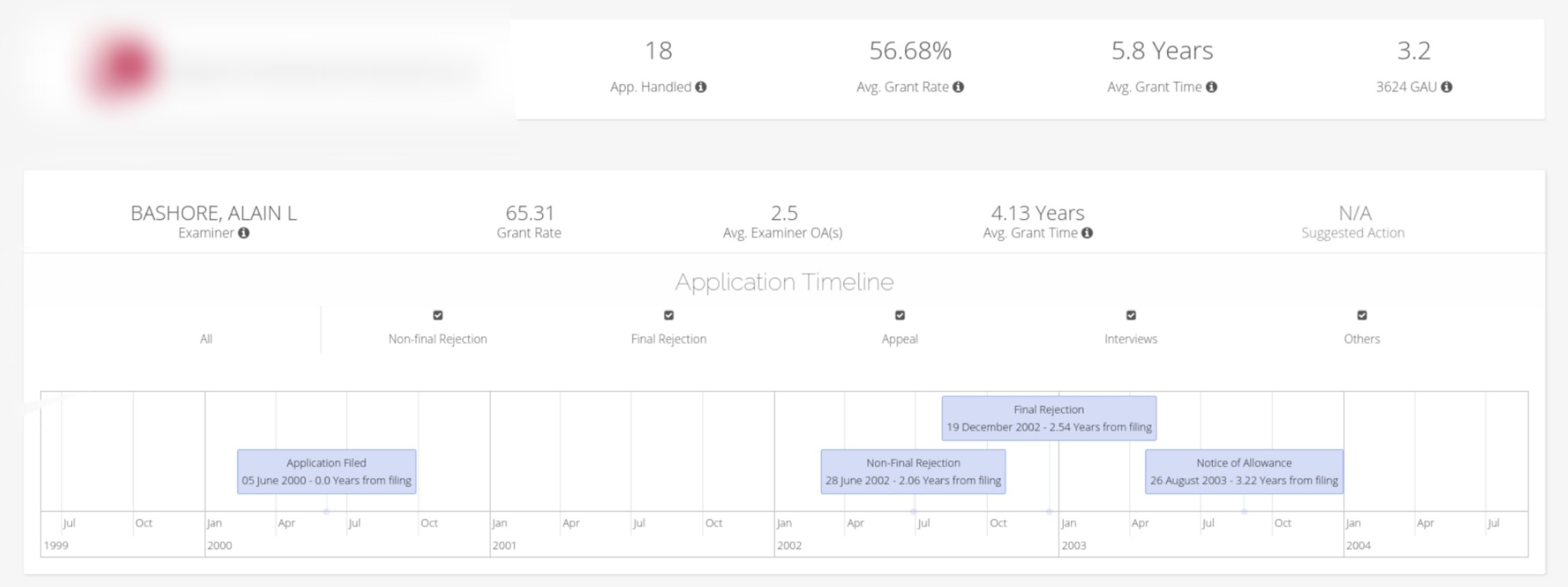 This here for example are stats from a law firm based out of the US having a strong group of around 650 attorneys who specialize in different industries (including construction, energy, financial, health, media, retail, and technology). They have also represented Google and Sony in litigation cases.
This here for example are stats from a law firm based out of the US having a strong group of around 650 attorneys who specialize in different industries (including construction, energy, financial, health, media, retail, and technology). They have also represented Google and Sony in litigation cases.
In the first strip, you can see their record in the past 2 years for-
- Total applications handled by their firm (under 3624 GAU)
- Their Average Grant Rate (under 3624 GAU)
- Their Average Grant Time (under 3624 GAU)
- Their Average Office Actions (for 3624)
The second strip represents the examiner’s details for that art unit and the timeline of that application.
Now wouldn’t presenting your clients with solid stats like this help build trust?
And if you don’t believe me, see what Michelle Gallagher, Senior Advisor Legal Operations at Dell has to say about the use of money management tools-
“I believe that the Dell legal department receives the most benefit within being able to support legal’s needs in saying, hey we’re worth the value because we saved you this much money.
Look how much we claimed on the VAT taxes because we can now track it and report it out.
So, I think that the ability is to not only have the data in the system but to be able to retrieve that and put it into a format that is understandable and valuable that decisions are made upon, that data that we’re providing to our general counsel and other leaders of the company.”
Patent/IP Management
Let’s face it, patents require more attention than a newborn baby.
They require regular maintenance and meticulous review mechanisms. But it’s not all for nothing.
Patents are a company’s assets. Especially to those who own large patent portfolios. That’s because they need to keep track of new patents being granted, ones being acquired, ones sold, and the ones that are abandoned or expired.
This regular maintenance and reassessment of patents can be tedious.
With the help of relevant automation tools that would perform this meticulous and monotonous task, In-house counsels can invest this energy into more meaningful and thought-provoking tasks.
With this increased bandwidth they would be able to accomplish more in less time.
It would be fair to say that with the help of automation tools, one can easily streamline this process into a smooth sailing ship.
And not just that, slow CRM adoption can negatively affect sales and finance teams.
Motorola, for instance, struggled with two similar challenges. Namely-
- CRM adoption for quotes
- Complex formulas to quantify cost-to-serve terms.
And to overcome this problem Motorola’s team started using a tool that helped them turn excel into a user interface for CRM applications.
According to Aaron Biggs, Global Operation Lead, Motorola-
“With X-Author, not only is data automatically in Salesforce, but we have full flexibility over the Excel layouts. It has completely changed how we use and think about Salesforce.”
And what do you know, with the integration of one tool, they saw numerous benefits such as-
- Increased production with familiar Excel interface
- Eliminated duplicate work
- Data automatically pushed into a CRM system
- Rules and permissions govern X-Author for Excel and ensure compliance
- Increased CRM usage, adoption, and data accuracy
- Greater visibility into terms, costs, and margins for business-side functionality
- Faster response times and more accurate information
Knowledge Management
It’s always sad when a colleague leaves, but what adds to the sadness is the fact that they take their years of experience and knowledge with them.
Hence it is important for the growth of a firm to pass on that knowledge from seniors to new additions to the team. And while many do that, they do it verbally, and let’s face it, there’s only so much you can convey verbally.
Information loss is bound to happen.
What if you forget to pass on something?
What if they forget some part of it?
What if some information is misconstrued due to the communication gap?
Your teammates may have to fight battles already fought by their seniors but without their guidance. Instead of going up, you may feel like you’re going round in circles.
All of this can be avoided by the institutionalization of knowledge. Through the institutionalization of knowledge in a company, all the progress made in different projects can be saved on a single platform.
Institutionalization falls high on the priority list especially for a company with a patent portfolio.
One of the collaborative tools that help in tackling the knowledge management of a company with a large or medium patent portfolio is Slate.
While analyzing the patent portfolio within your company, you can use this tool to create a knowledge base that not just you, but your juniors, seniors, or any teammates working on the project can access.
With a system like this in place, you can get a good night’s sleep knowing that all your teammates are on the same page. And not just that but the future “generation” of teammates that will join you later will be able to view the struggles that you went through. And we know not repeating these will save their (and company’s) time.
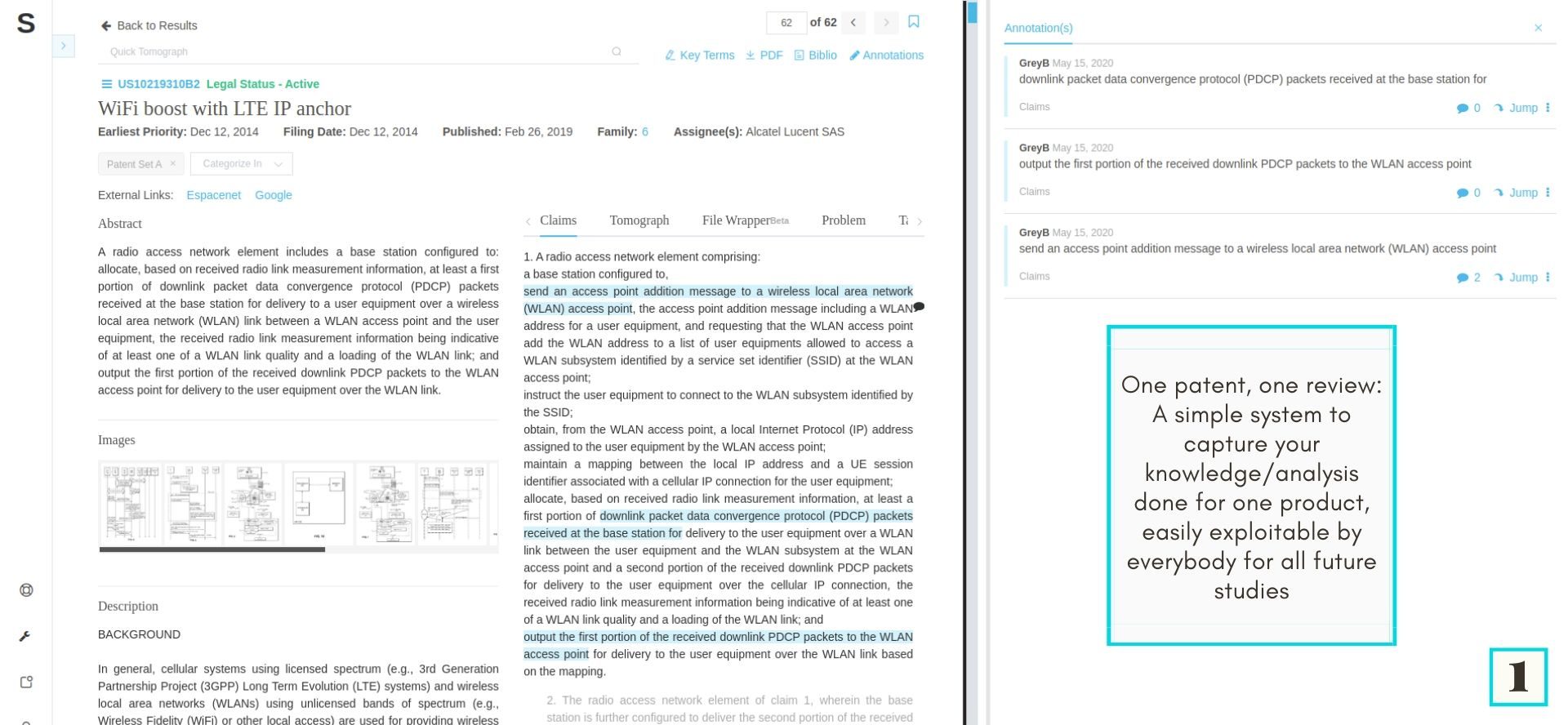
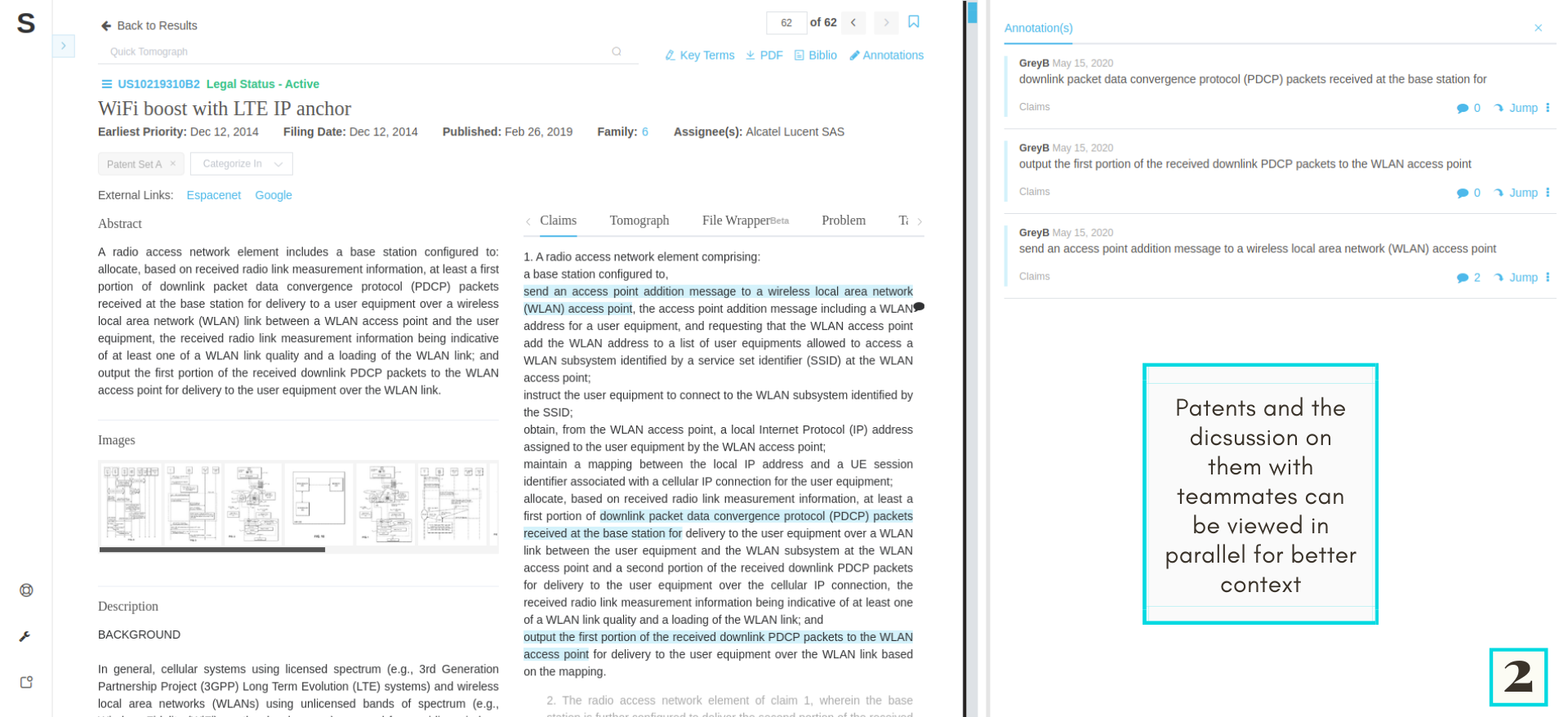
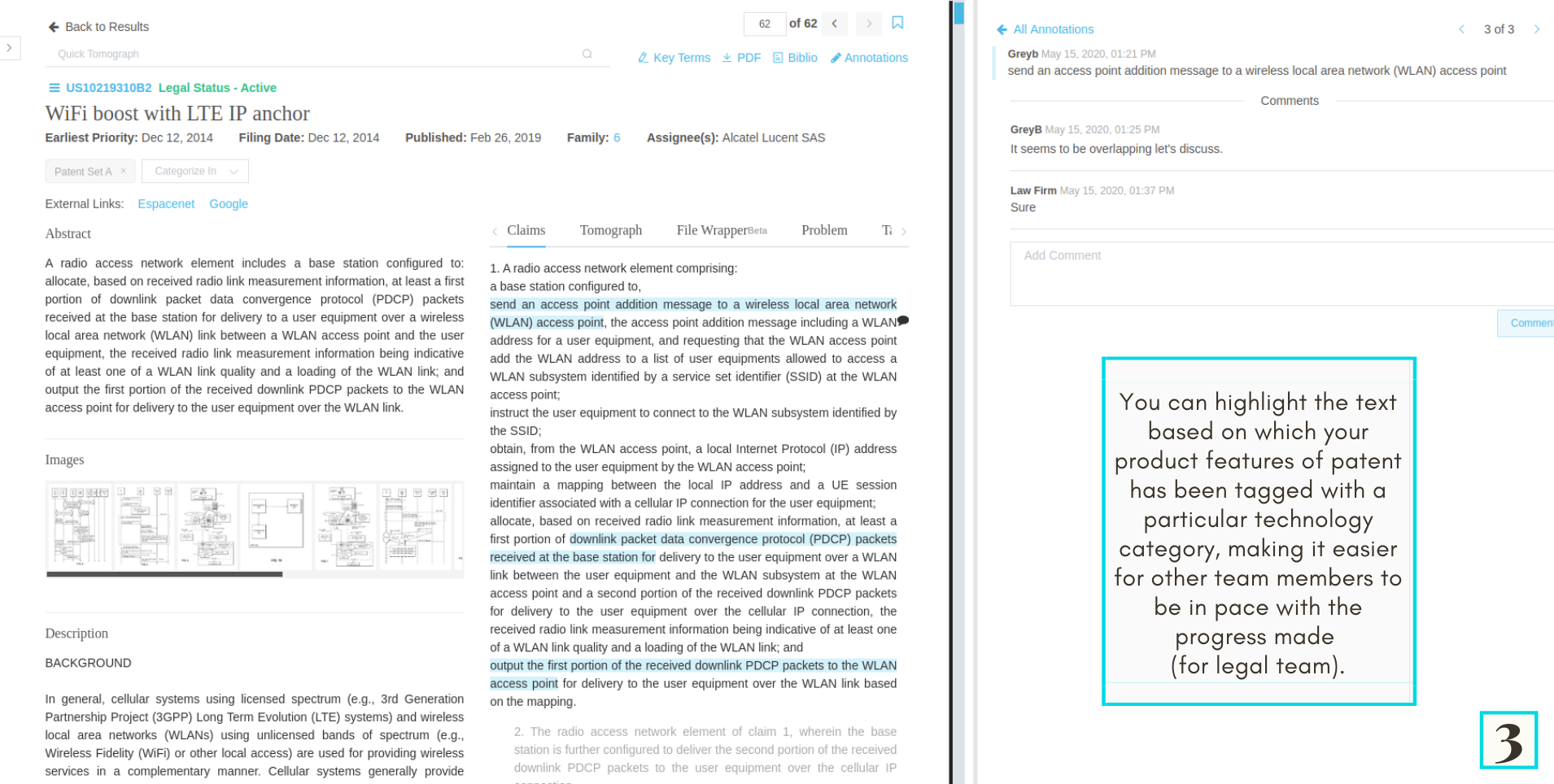
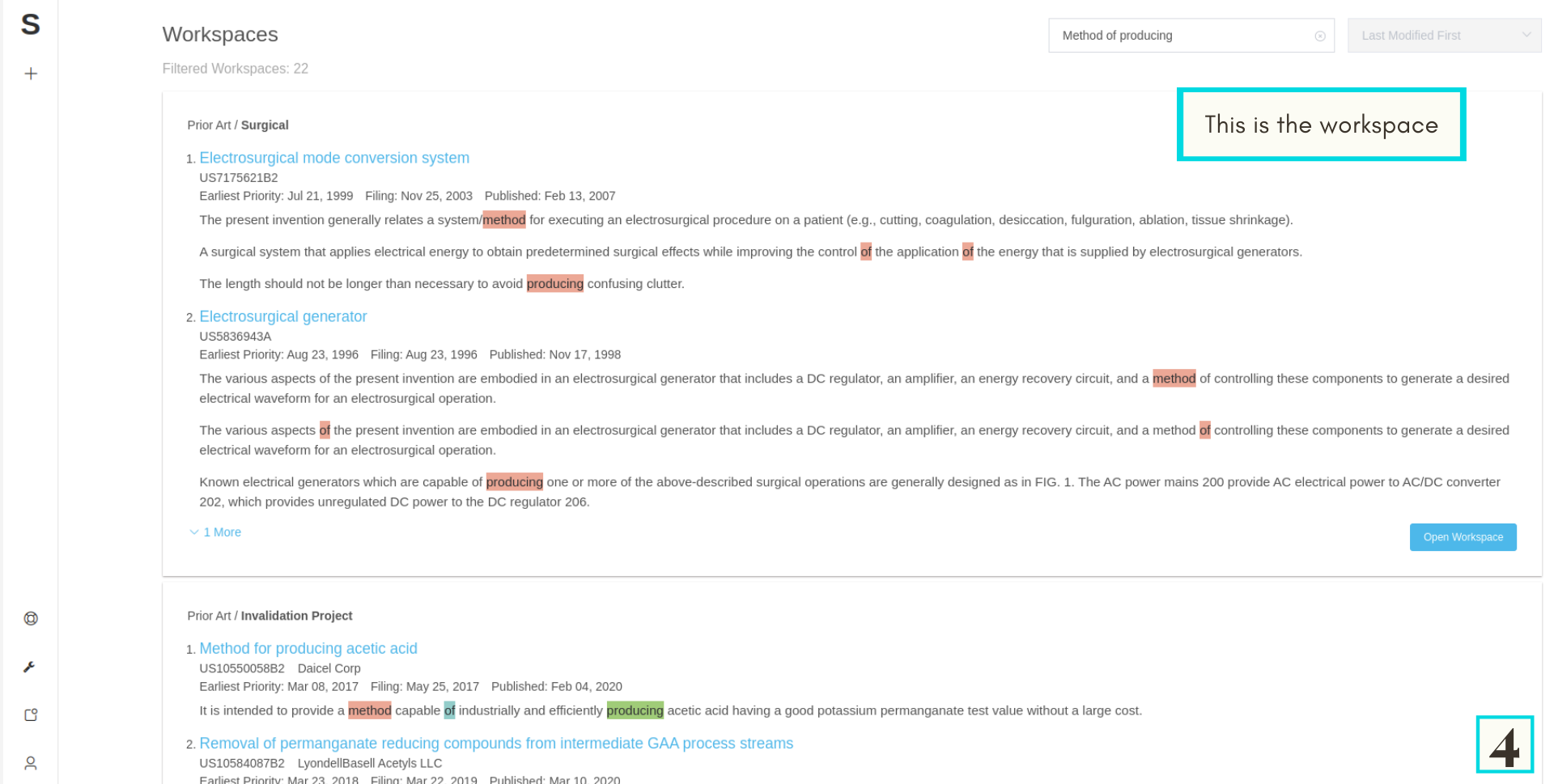
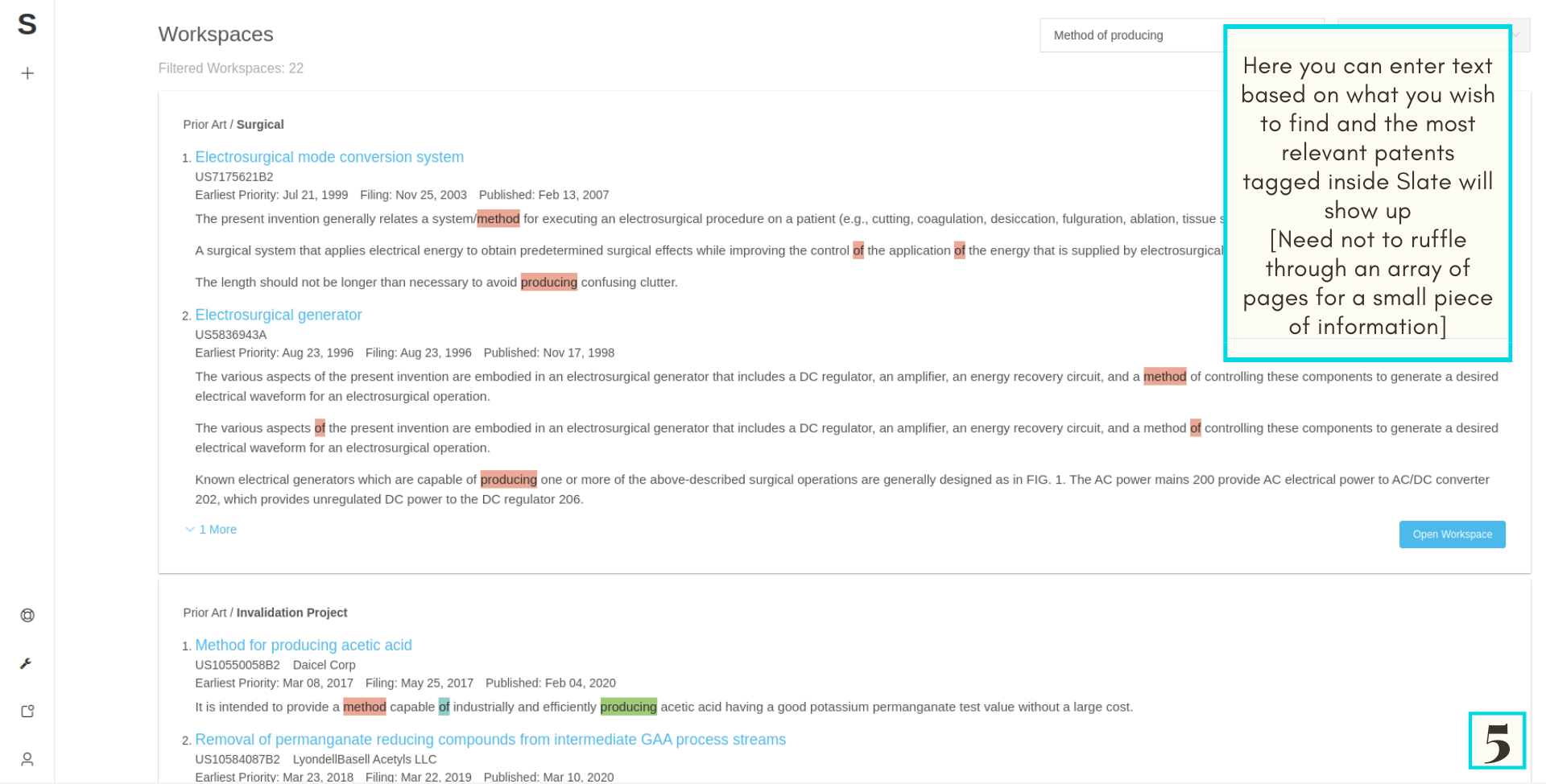
AI Lawyer vs Human Lawyer
A.I. giving out verdicts in a court and handling legal documents seem like something out of a futuristic Sci-Fi movie.
And it could be because it has been painted that way.
Micha Grupp claims that AI is a “buzz word”.
According to him when people say AI, they could mean anything like general neural networks or Convolutional NNs or Bayesian Networks or Expert Systems- AI could be referring to a variety of different technologies.
John McCarthy said: “As soon as it works, no one calls it AI anymore.”
Sometimes AI is used by developers to coat their tech in a thick layer of futuristic-techiness.
But the other times it’s not necessarily the case. There are many documents analyzing AI tools that truly help speed things up. Examples include Kira, Luminance, Leverton, LegalMation by IBM Watson.
But we don’t know what’s behind their AI tool. I asked. But they just won’t give away their very important codes that make everything run, willy nilly to anyone who asks.
But whether AI does give out verdicts and handle difficult clients for us in the future or not, we should be all happy about its possible arrival.
While many lawyers are skeptical of it, worried it’ll eat up jobs, they should be happy about it. Leave happy they should be laughing and crying and clapping and cheering for it!
As an AI or a robot could never take our job. For we do certain things at work that a robot would never be able to replicate.
I mean I don’t think a robot will send passive-aggressive emails to coworkers or, eat someone else’s lunch or slack off at work…or will they?
Data Analytics
“For me, a meeting with a firm not using any tools is kind of a disqualifier.
No matter how great a firm is, they are working with a small data set and if they are not using the tools it is unlikely I would add them,”
Damon Hart, Liberty Mutual senior vice president and deputy general counsel for litigation was quoted saying in an interview. And he isn’t the only one thinking this.
How do you prepare a strategy for your company? Based on intuition? By listening to your gut?
Well, you might as well get a tarot reader or ask a crystal ball.
At this time when various tools can help you predict various future outcomes based on company data, it’d be almost a criminal act towards your company to make decisions based on “hunch”
Hence data analytics can be arguably one of the most important legal techs.
What can it do for you, you ask?
For one many expenditure tracking tools allow you to access and view data related to spending and operations. This may let you predict most of your legal costs and spendings.
Secondly, when it comes to exposure and risks, companies look towards their legal departments. Just imagine the future where a tool will be able to tell you with near certainty when, where, and if your company may face litigation?
With this power in hand, one can intelligently plan their company’s operational strategy.
Analytics can also help you find the needles of insights in your hay of data. These insights can help you figure the likelihood of you achieving a pre-set aim.
Many counsels such as Bob Taylor, Vice President, and Senior Corporate Counsel for legal ideation and transformation at Liberty Mutual swears by data analysis for Liberty Mutual which is the third-largest property and casualty insurer in the United States.
In a recent interview, he said–
“I do think we are unique in that we have data analysis, scientists and modelers embedded in the legal department.”
Liberty Mutual seeks help from data analytics for decisions such as which law firms choose for specific matters in certain jurisdictions and it helps them as far as to choose the specific partners who should work on those matters.
They also use other tools to analyze verdicts in specific jurisdictions and to assess the likelihood of a motion’s success in front of a certain judge. The company uses its proprietary data as well as data and tools from outside providers for analysis, and to benchmark results.
And he isn’t the only one.
A lawyer with MBA, Nathan Cemenska, Director of legal operations and industry insights at Wolters Kluwer, while talking about legal departments and how they asked opinions of outside counsel for big cases said–
“The lawyers are gods, so the decisions they make, I am going to go ahead and trust them on that.”
But he then added,
“We are moving further and further away from that, and you have to be able to show you have a sound decision-making process on huge cases. They are not going to let you just ‘go with your gut on this,’ they are going to want a damn good explanation and it has to be backed up with data on why you did what you did.”
So now, while calculating and mitigating risks would you-
Ignore the goldmine of data you have and go with your hunch
OR
Turn that data into information that could paint a clear picture of your company’s position and make informed decisions based on it?
If you chose the latter, there are a lot of good things in store for you 🙂
Effective Work From Home Management
I think all of us are coming to terms with the fact that it could be a while before we get to see the happy faces of our colleagues and ask them about their weekend near the water cooler.
You may have felt it in the few days of your social distancing that even relatively easy tasks were slowed down. Let’s not even speak of the complex legal matters.
Hence for the smooth functioning of work remote collaboration tools are very important at this time.
These tools can help you make sure that important tasks and responsibilities don’t fall through the cracks.
Many tools can help your team form strong communication threads which can help you and others keep track of the five W’s–
- What matters are being worked on?
- Who is working on them?
- When was the last task executed?
- Where are the documents relevant to the matter?
- Why were certain actions taken?
Many cloud-based tools give access to all members of the team of the documents and the changes in them can be seen in real-time.
Imagine sitting in your home, being able to track the progress on a task without the hassle of asking for updates, seeing changes made right in front of your eyes. It will cut down on your need to call and ask for status and will give you the feeling of sitting with your team and working. Well, almost.
While lawyers are usually skeptical of integrating technology into their work, one, even if begrudgingly, will have to admit that these collaboration tools have proved to be extremely helpful and trustworthy. Right now going with old document-dependent fashion is just not an option.
Take Amazon for instance. As a multinational company, their law department faced several challenges coordinating with its overseas business units and law firm.
According to Sam Bernstein, Legal Operations Manager at Amazon–
“Often our work spans multiple countries and departmental budgets, and the invoices have to be reviewed by everyone involved. We needed a Web-based tool to handle our workflows around the world so that I could centrally manage the legal department’s billing, budgeting, and spend reporting from Seattle.”
The Amazon law department then opted for a legal tracker tool which allowed them to easily process international invoices.
For example, the invoice for each entity’s information and international tax is routed for review to local business units. Amazon also configured their tool to hold invoices until a particular vendor has been set up in both the U.S. and international AP system.
This feature, according to Bernstein, “made international billing easier.”
Today, Amazon uses the legal tracker tool to not only collect invoices but also, budgets and unbilled time from 100% of its firms, which operate in more than 90 countries.
With the help of just one tool, an international conglomerate such as Amazon was able to coordinate within its vendors, law units, and offices spread across 90 countries.
Imagine a good tool, which fits your team’s needs, can do for your firm.
Conclusion
Can you imagine being stuck in quarantine in, say the 1990s with your keypad phones and your dial-up internet? A horrific thought, wouldn’t you say?
Now that I have given enough food for thought above, I understand that your dilemma with technology is much beyond these case studies. Taking one step at a time, in the next article, we’ll answer a few questions which might bring you another step closer to Legal Tech.
Here are the ten questions (with answers) on why you should go for Legal Tech.
Authored by: Oorja Pandya, Research Analyst, Market Research



